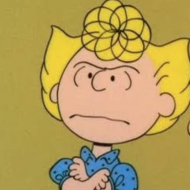Every few years, fiction readers are warned about the death of the short story. But there are loyalists to the genre—this magazine among them—and work continues to be published for those who know where to look. Storyville, an app available for iPhone and iPad, joins the push on the electronic literary front by giving its subscribers a new short story each week—from established as well as new authors—and access to its archive. “We are looking for stories that are already out there, but that haven’t found an audience,” Paul Vidich, Storyville’s co-founder, has said. Read more at newyorker.com…
Between the Lines
Earlier this month, Shaun Usher—a freelance copywriter and the man behind Letters of Note and Letterheady—launched Scaffoldage, a site devoted to the beauty of scaffolding. Photographs of construction and restoration sites as varied as the New York World’s Fair, an ancient Chinese palace, and a water tower in England feature latticeworks of scaffolding that, in photographs, appear as intricate as drawings. Read more at newyorker.com…
Time’s a Goon
I think the New Yorker Book Club discussion technically started last week with Kate’s report on the “Eat, Drink, and Be Literary” event with Jennifer Egan and the New Yorker’s fiction editor, Deborah Treisman, at B.A.M. “I became interested in Bennie while writing about Sasha, and interested in Bennie’s ex-wife while writing about Bennie … and a novel was born,” Egan said. This formula is what gives “A Visit from the Good Squad” its amorphous quality: it’s a novel, but one that reads like a collection of short stories. Bennie and Sasha are the novel’s protagonists, a record producer and his assistant, but it’s the ancillary characters in their lives—the aforementioned ex-wife, Sasha’s suicidal friend, an unstable, washed-up guitarist, the tender son of Bennie’s mentor—who, when given their own respective chapters, prove to be the most compelling.
Heartbreak, suicide, insanity: we’re firmly planted in the music business, in eras that range from the post-punk eighties to the near future, in which babies with handheld devices are the new tastemakers. The music industry’s unraveling has proven to be a template for others—publishing, for one—and here music’s shift from cultural barometer to background whine is used as an analogy for the movements, the changes, the general selling out that most us eventually do. Read more at newyorker.com…
Lessons
 On September 2, 2001, I arrived in Rome for a semester abroad. My pensione’s lone TV didn’t get any English stations, and my Italian wasn’t good enough for me to make sense of the newspapers. As a result, I spent most of that fall in a state of hyper self-awareness, intuiting the season’s events in a way that left me both raw and charged. I didn’t think about things so much as feel them.
On September 2, 2001, I arrived in Rome for a semester abroad. My pensione’s lone TV didn’t get any English stations, and my Italian wasn’t good enough for me to make sense of the newspapers. As a result, I spent most of that fall in a state of hyper self-awareness, intuiting the season’s events in a way that left me both raw and charged. I didn’t think about things so much as feel them.
My professors, classicists to the core, reacted to 9/11 and the anthrax mailings by telling us to get out our sketchpads and draw the Pantheon’s columns. In October, however, we got a break from the ancient world and began a unit on Dante. We read the entire Divine Comedy but focused mainly on the Inferno, which now seemed important in a way that terrified me. I sat in a beam of sunlight in the library of the pensione, the illuminated dust around me like lazy confetti, and read:
I saw them all fall one by one, as the fifth and sixth day passed. And I, by then gone blind, groped over their dead bodies. Though they were dead, two days I called their names. Then hunger proved more powerful than grief.
This is the story of Count Ugolino, who was locked away with his sons and left for dead by his archenemy, Archbishop Ruggieri. Ugolino ultimately resorts to cannibalizing his children before he dies; in hell, he’s condemned to forever gnaw at Ruggieri’s head. My professor delighted in hell in a way that suggested she’d not really experienced life, and when I read that passage, I knew that tragedy and horror are things that know no age and bind us all.
In the Metropolitan Museum of Art is a statue called “Ugolino and His Sons,” by Jean-Baptiste Carpeaux. Ugolino sits twisted upon himself, tortured by his children’s pleas to use their bodies as food. The Met is holding a contest right now, asking its patrons to photograph a detail of a work that they think is particularly meaningful or poignant. In all the museum, there’s nothing I find as moving, or as terrible, as the beautiful face of the dead boy at Ugolino’s feet.
(Image: The Metropolitan Museum of Art)
In Retrospect
Not sure if this line from the “Rawhide Down” review was intended to be funny, but I enjoyed it:
The attempted assassination of Ronald Reagan is a harrowing story, more so than it seemed at the time.
Q&A: Jews Behaving Badly
In the July 18, 1988, issue of The New Yorker, Adam Schwartz published “The Grammar of Love,” a short story based on his teaching experiences in Chicago. He followed with the publication of “This Bed” in the June 22, 1992, issue, and earlier this year, both stories were incorporated into the novel “A Stranger on the Planet,” which follows Seth Shapiro through his life. We meet Seth as a lost adolescent, and watch him become a somewhat-less-lost man. Seth and his family are, as Schwartz says, “New Jersey Jews behaving badly”—his mother is needy; his twin sister is pragmatic yet willful; and his father, who is married to the French woman that broke up his marriage to Seth’s mother, is cold and later estranged. Also estranged is Seth’s brother, Seamus, who responds to his family’s distress by becoming orthodox.
Recently, Schwartz and I exchanged e-mails about truth, divorce, and the writing life; read more at newyorker.com…
Texas Ranger
“I can’t imagine a music-related event on earth that requires more advance planning and preparation than South by Southwest in Austin, Texas,” writes NPR Music’s Stephen Thompson, outlining the wide-ranging schedule of the new-music festival—running through Saturday—which features some two thousand acts appearing on more than eighty stages. In an effort to sort out the tonnage, NPR Music created the Austin 100, a mix of the editors’ favorite participants in genres spanning hip-hop, metal, dubstep, bluegrass, and more. Read more at newyorker.com…
Women’s Work
After Ann Friedman, a contributing editor and columnist at The American Prospect, saw Vida’s statistics on women in publishing last month, she launched Lady Journos, “a one-stop shop for lazy editors who claim there aren’t many women journalists,” as she wrote on her personal site. Lady Journos highlights the work of lesser-known women from publications including the New York Review of Books, Mother Jones, Wired, The Awl, Virginia Quarterly Review, and Foreign Policy. Read more at newyorker.com…
Townie Kid
I grew up not far from Oberlin College. In high school, my friends and I would drive the 20 minutes south on Rt. 58 and hang out at the campus coffee bars. I didn’t drink coffee at the time and wouldn’t for years, not in college or when I started working, though I embraced every other bad habit I associated with publishing and adulthood. Instead, I ordered steamed milk with a shot of Irish cream syrup, and sipped it while carefully slouched in a threadbare armchair. I wanted to come to Oberlin alone so I could more shamelessly play the part of an East Coast transplant, but I never worked up the courage.
All this to say: I want to read Townie.
Story Time
On Monday, Andy Hunter and Scott Lindenbaum—the duo behind the new-media short-story venture Electric Lit—launched the public beta site of Broadcastr, a location-based storytelling project that allows users to record, index, listen to, and share stories about the places that inspired them, online or on a mobile device. So far, Hunter says, Broadcastr has partnerships with organizations including the Shoah Foundation, the National September 11 Memorial & Museum, and the New York City Department of Parks & Recreation, and while anyone can upload a story, the site has been pre-stocked with offerings from artists and comedians. Read more at newyorker.com…
